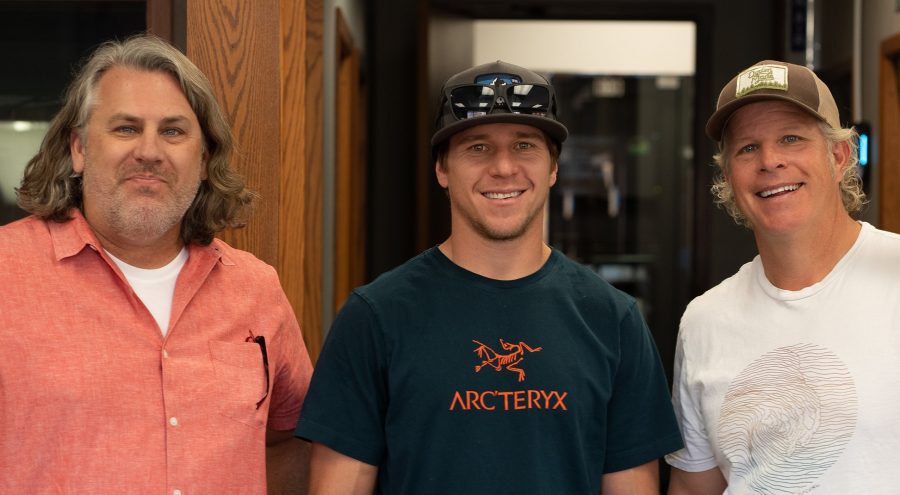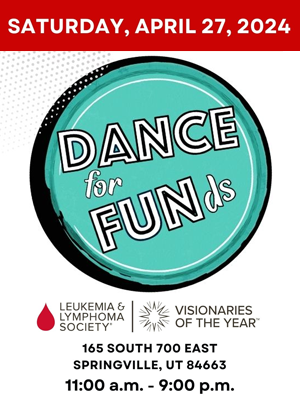Utahn recalls chasing his dream as a professional soccer player — until addiction took over
By jtilton on November 12, 2020
A Utahn who found success in collegiate soccer is coming out after addiction took over his life and almost cost him everything — including his dream of being a professional soccer player.
Cord Stimpson joined the Project Recovery podcast to talk about the dangers of opioids, drug abuse, and how easy it was for his life to free fall after succumbing to a life of substance abuse.
A collegiate success
On the evening of November 19th, 2011, Cord looked up into the crowd, completely exhausted. His team had just beaten the University of Missouri after playing six games over three grueling days. The team and just earned Weber State University’s Men’s Soccer Club it’s sixth national championship. The Wildcats would end the season with a 23-2-1 record.
Then the announcement would come — Cord was going to be rewarded the tournament’s Most Valuable Player award.
After he began to garner attention for his success in the national tournament, Utah’s Major League Soccer team, Real Salt Lake, invited him for a tryout to put his skills to the test. All of the pieces began to align for Cord — his dream of becoming a professional soccer player was finally coming true.
A small injury turns into a career-ending surgery
During his 2011 season, Cord began to start rolling one of his ankles during games. It continued to get worse and worse until proved to be too much. While he was trying out for Real Salt Lake, he ultimately tore all of his ligaments and tendons during the workout.
The injury was so severe that it immediately required surgery. This was also the first time that Cord was introduced to opioids after being given a prescription to manage the pain.
“Coming home from the surgery, I was all hopped up … I didn’t have any pain, it was fantastic,” Cord described. “It was a feeling I’ll never forget — to feel that relaxed and happy.”
Cord’s professional career had just ended which could naturally impact anyone’s mental health. But for Cord, the mental and physical pain was being clouded by a pain killer.
“Life’s not really good super good for me at this moment, but it is in that exact moment,” he said. “In retrospect, obviously, I should have seen something coming and my parents should have seen something coming but we didn’t.”
How easily addiction took over
After his career was suddenly cut short, Cord didn’t really know where to turn to.
“Soccer was kind of my thing, my plan for life,” Cord described. “Looking back, I didn’t have a backup plan.”
Not really understanding how to cope with his new life and the pain of his recent surgery, Cord began to turn to drugs. Initially, he was unable to put any weight on his ankle for twelve weeks. This proved to be incredibly difficult for Cord because of his nature to always be moving. Being forced to sit still for twelve weeks began to cause immense anxiety and stress. The only thing that could calm him down was the pills according to Cord.
“If I wasn’t on them, I was ramped up and I wanted to stand up but if I took the pills, it relaxed me,” he said. “That was the most peaceful feeling.”
This feeling of euphoria began to permeate throughout his thoughts. He started thinking that he needed more and more, even as his pain began to subside. Cord started to abuse his mother’s trust by asking for more pills — until they ran out.
“I couldn’t get any more [because the prescription ran out]. I think that’s really where the addiction came into play because I knew I needed them,” he said.
Turning to a life of addiction
Cord’s newfound love for prescription painkillers was just the beginning of how his addiction took over. He started searching for different types of opioids. Some were more expensive than others and therefore out of reach but he knew he wanted that same feeling of euphoria.
That’s when he began to find the narcotic pain reliever, Roxicodone. Typically used to treat moderate to severe pain, Cord was taking them to feel normal — but they came at a price, a very hefty price.
“They were expensive. They were $30 a pill but it was more bang for your buck,” Cord recalled. “I think that’s when full-blown addiction happened when that got introduced.”
As Cord’s addiction took over every aspect of his life, he wasn’t able to keep up with the cost of his addiction. Which led to his introduction to the more dangerous and cheaper alternative — heroin.
Addiction begins to completely take over
At the height of his addiction, Cord says he spent over $100 a day on drugs to satisfy his cravings. He also explains that this period would last roughly around nine months. To pay for his excessive use, he started to pawn many of his assets to pay for his drug addiction.
Cord’s addiction was so bad that it began to create strains in his relationships with his family and his girlfriend at the time — until it all came crashing down.
Cord was housesitting with his girlfriend when they heard a knock at the door in the early hours of the morning.
“I’m freaking out, it’s not my house. I don’t know who could be knocking on [the homeowner’s] door. I open it up and it’s my mom and stepdad,” he said. “My stepdad shows me that he found my tin foil, lighter, straw, and black stuff all over the tin foil.”
It had finally happened. Cord’s secret had finally been found out and his life was about to change dramatically.
Seeing the light of sobriety
Cord only had one thought after his mom and stepdad found out about his heroin abuse.
“It was by far the best moment of my life,” he said.
All of Cord’s drug abuse had caught up to him but instead of feeling scared and afraid, he began to see the light of sobriety.
“As hard as it was to be caught doing something like that, for the longest time before that, I knew that I was in so deep. I was losing trust in so many people. I was causing fights with my loved ones, stealing from them. For the longest time, I knew I was doing this thing that was just not okay,” Cord explained.
That next day, Cord would spend the entire day telling his loved ones about how his addiction took over every aspect of his life. He would also be introduced to the SOAR program in Ogden, UT. He would spend the next year with the program where he began to find a passion for physical exercise and working out.
Cord cut out drugs completely from his life. He then used his new passion to help keep him on the road to recovery but that’s not where his story ends.
Listen to the podcast to find out about Cord’s journey and how addiction took over again
For more information on opioid prevention or if you or someone you know is struggling, you can find more information on Facebook, KSL TV, or Know Your Script. To hear more from Casey Scott and Dr. Matt Woolley, you can listen below or subscribe to the ‘Project Recovery’ podcast on Apple Podcasts or wherever you get major podcasts.









